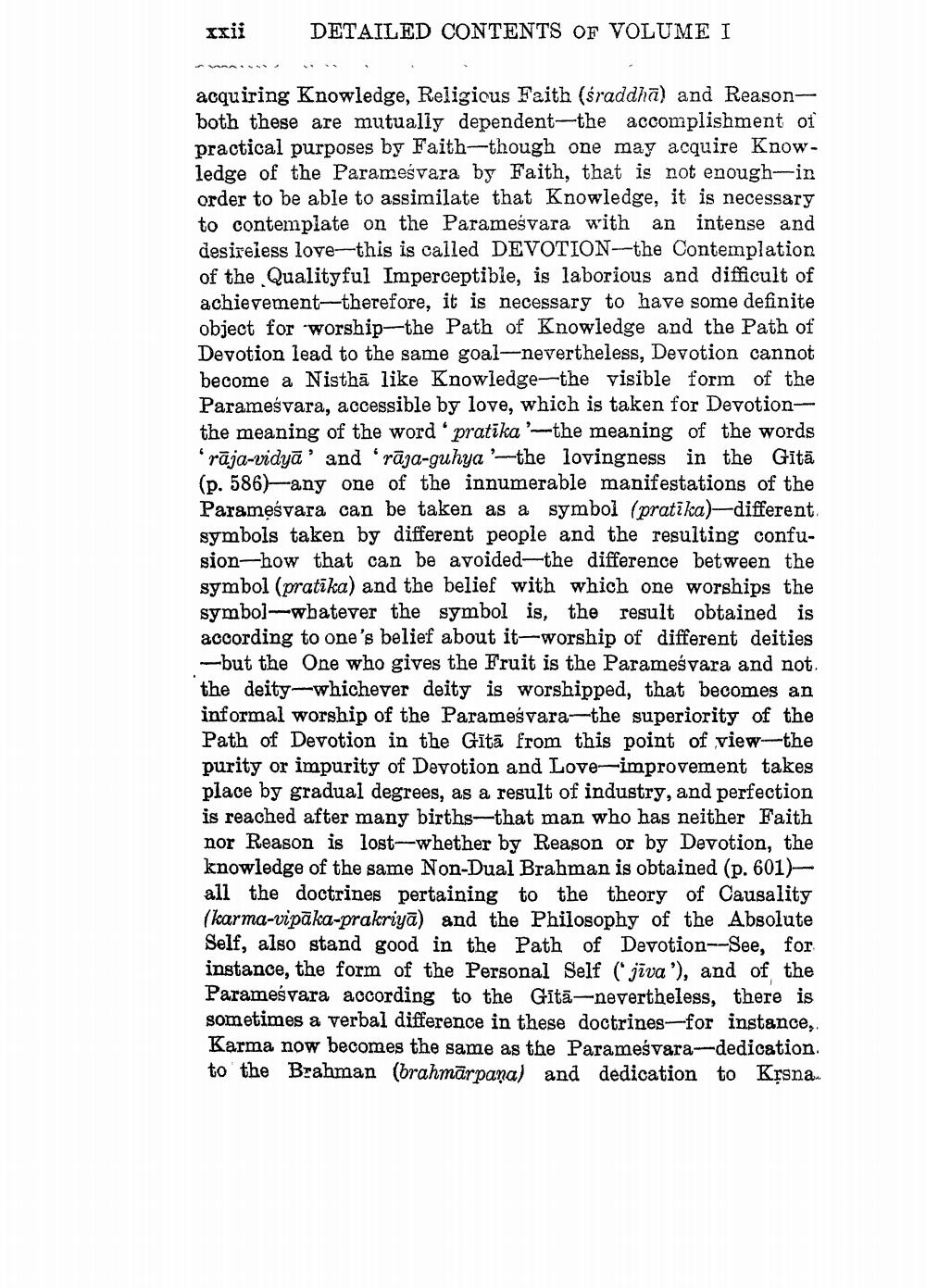________________
xxii
DETAILED CONTENTS OF VOLUME I
acquiring Knowledge, Religious Faith (sraddha) and Reason both these are mutually dependent-the accomplishment of practical purposes by Faith--though one may acquire Knowledge of the Parameśvara by Faith, that is not enough-in order to be able to assimilate that Knowledge, it is necessary to contemplate on the Parameśvara with an intense and desireless love-this is called DEVOTION--the Contemplation of the Qualityful Imperceptible, is laborious and difficult of achievement-therefore, it is necessary to have some definite object for 'worship-the Path of Knowledge and the Path of Devotion lead to the same goal-nevertheless, Devotion cannot become a Nisthā like Knowledge the visible form of the Parameśvara, accessible by love, which is taken for Devotion the meaning of the word 'pratīka'--the meaning of the words 'rāja-vidyā' and 'rāja-guhya'--the lovingness in the Gītā (p. 586)-any one of the innumerable manifestations of the Paramęśvara can be taken as a symbol (pratīka)-different. symbols taken by different people and the resulting confusion-how that can be avoided-the difference between the symbol (pratīka) and the belief with which one worships the symbol-whatever the symbol is, the result obtained is according to one's belief about it-worship of different deities --but the One who gives the Fruit is the Parameśvara and not. the deity-whichever deity is worshipped, that becomes an informal worship of the Parameśvara--the superiority of the Path of Devotion in the Gītā from this point of view the purity or impurity of Devotion and Love-improvement takes place by gradual degrees, as a result of industry, and perfection is reached after many births-that man who has neither Faith nor Reason is lost-whether by Reason or by Devotion, the knowledge of the same Non-Dual Brahman is obtained (p. 601) all the doctrines pertaining to the theory of Causality (karma-vipāka-prakriyā) and the Philosophy of the Absolute Self, also stand good in the Path of Devotion--See, for instance, the form of the Personal Self (jiva'), and of the Parames vara according to the Gitā-nevertheless, there is sometimes a verbal difference in these doctrines--for instance, Karma now becomes the same as the Parameśvara-dedication. to the Brahman (brahmārpana) and dedication to Krsna.




